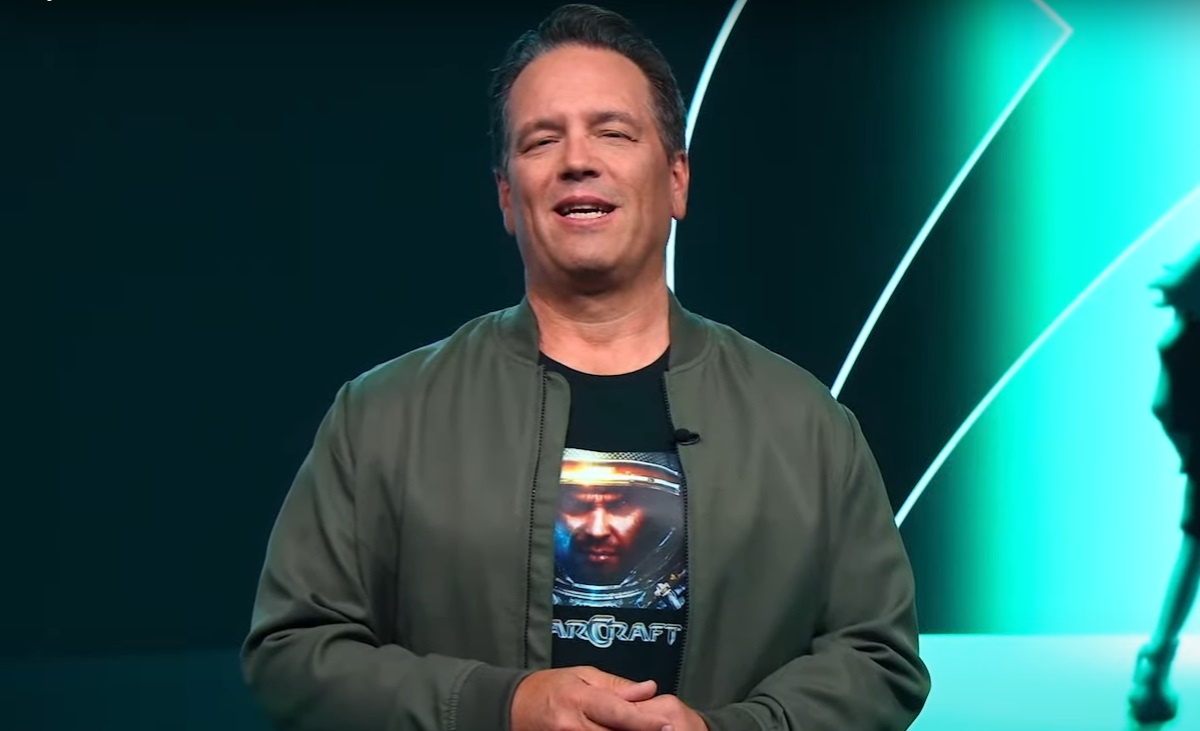Phil Spencer says Microsoft's PC-heavy lineup this year is 'historical' and an 'anomaly', so don't get used to it
"We want our games playable across as many screens as possible."

Xbox chief Phil Spencer has recently been doing the interview circuit, mixing up his usual advocacy for Microsoft's slate with some more eyebrow-raising claims: Such as that, after the jobs bloodbath that followed the Activision-Blizzard acquisition, Microsoft is now hungrily looking at other acquisitions. After all, why stop at $69 billion?
One immediate consequence of that deal is the huge riches Microsoft instantly gained in the PC space, with obvious big-hitters like Blizzard and fan-favourite studios like Obsidian joining existing developer-publishers like Bethesda and id. It's an abundance of riches that no other mega corporation can boast.
Spencer clearly knows this, telling Stephen Totilo that one of his favourite releases of the year so far has been WoW's The War Within, as part of a longer-term righting of the ship at Blizzard. "I just have to go to World of Warcraft," says Spencer, "[because] one, we obviously have a new leader at Blizzard [Johanna Faries], and the reintroduction of World of Warcraft into China has gone incredibly well." Blizzard and NetEase recently renewed their partnership, which saw WoW return to China after being temporarily shut-out.
"And then having [Chris] Metzen back on the franchise, being at BlizzCon last year, seeing him come out on stage and announce the trilogy of the content and just seeing the strength of that brand, a brand that's been around for a long time. They’re surging across multiple fronts."
But while Spencer's bullish about Blizzard, and who wouldn't want to have a feather like WoW in their cap, he chooses a very odd word to describe Microsoft's end-of-2024 slate, which is PC-heavy. Totilo points out to Spencer that three of Microsoft's nine releases in this period are PC-only (The War Within, Towerborne in early access, and Ara: History Untold), and asks whether this is a new norm for Microsoft.
"No," says Spencer. "This is historical. There might always be some anomalies, but I look at those three as an anomaly. We want our games playable across as many screens as possible. We think about the Xbox platform as the Xbox console, PC and cloud. We want all the games playable across all of those. We want them to be Play Anywhere."
The Play Anywhere marketing line is all about the idea that, if you buy a game on one of these platforms (via Microsoft-approved means, of course), it's playable on all of them. Which seems very nice with something like, for example, Avowed. But doesn't seem to make much sense when you get to the likes of The War Within, with WoW having always been a PC-only proposition.
Keep up to date with the most important stories and the best deals, as picked by the PC Gamer team.
"I could even pick on us and say it's not true that, today, every piece of content you buy across all of those [devices] runs on all the platforms. I’m speaking to Rod Fergusson specifically about [Diablo 4's] Vessel of Hatred. But we want to get to the point where, when you buy, whether you're buying on cloud—which we're getting ready to introduce—buying on PC and buying on console, you own it across all of the Xbox ecosystem."

Rich is a games journalist with 15 years' experience, beginning his career on Edge magazine before working for a wide range of outlets, including Ars Technica, Eurogamer, GamesRadar+, Gamespot, the Guardian, IGN, the New Statesman, Polygon, and Vice. He was the editor of Kotaku UK, the UK arm of Kotaku, for three years before joining PC Gamer. He is the author of a Brief History of Video Games, a full history of the medium, which the Midwest Book Review described as "[a] must-read for serious minded game historians and curious video game connoisseurs alike."

